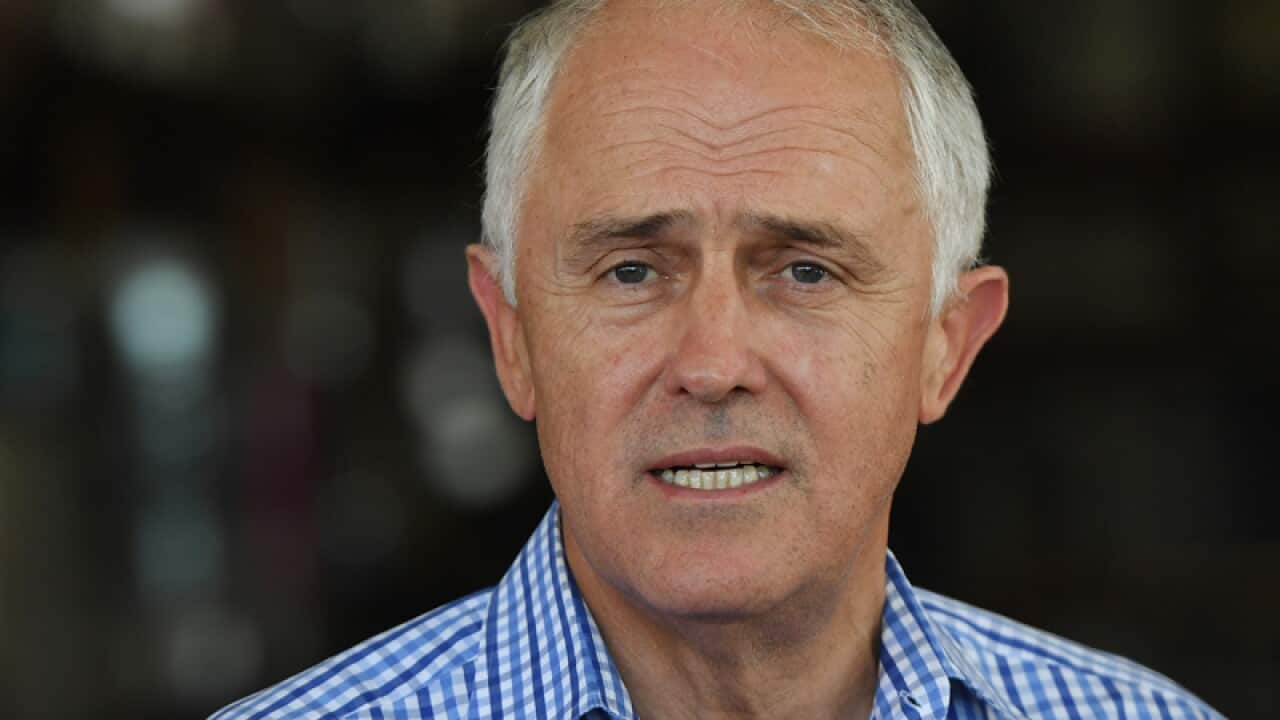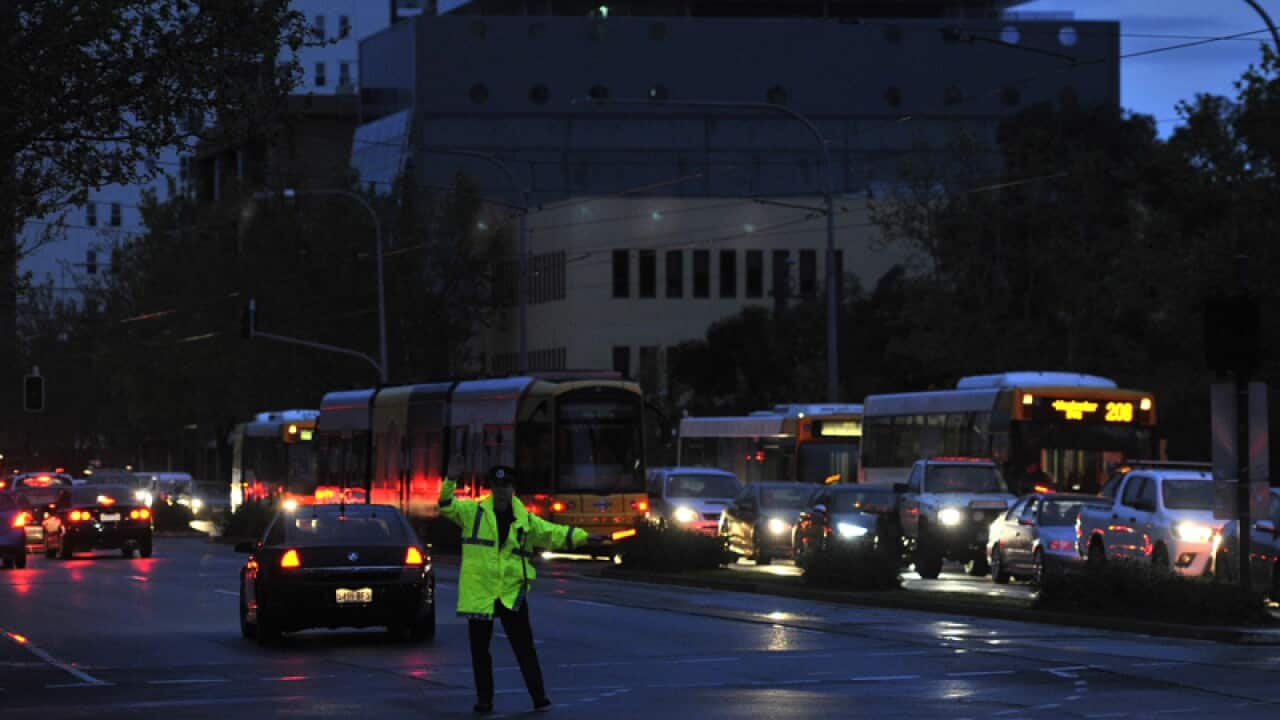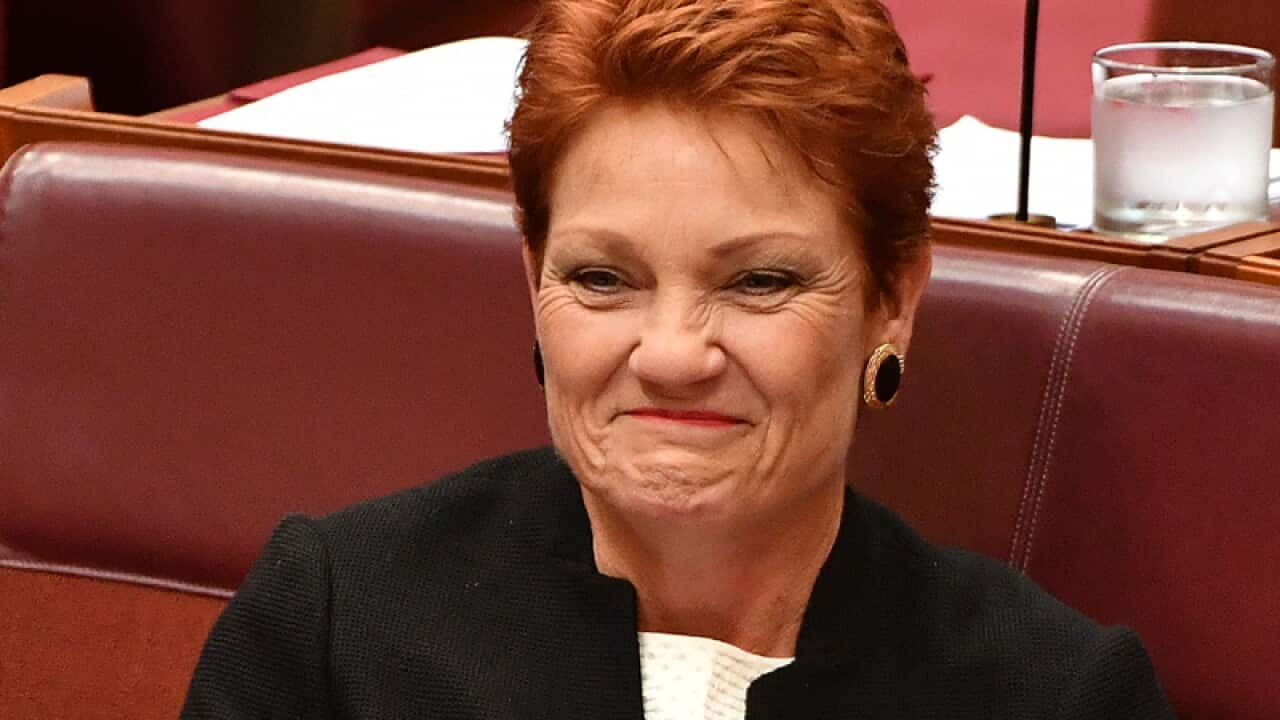Eighteen bodies including the Energy Council, the Australian Industry Group, the Australian Council of Trade Unions and the Climate Institute have released a joint letter calling for an end to finger-pointing and partisan politics over energy.
The letter argued the debate in Canberra was undermining investment and increasing the costs of businesses.
“There is simply no room for partisan politics when the reliability, affordability and sustainability of Australia’s energy system is at stake,” the letter read.
In parliament on Monday, Greens and Labor MPs responded to Treasurer Scott Morrison's coal stunt by bringing solar panels into the House of Representatives.
The debate over the reliability of renewable energy escalated, fuelled by revelations contained in emails released under Freedom of Information laws.
The emails, reported by Fairfax Media, show that on the morning of last year’s state-wide South Australian blackout the prime minister's own officials were advised the blackout had not been caused by the state's heavy reliance on wind power.
"[Electricity market regulator] AEMO's advice is that the generation mix (i.e. renewable or fossil fuel) was not to blame for yesterday's events - it was the loss of 1000 MW of power in such a short space of time as transmission lines fell over," one email read, according to Fairfax.
Opposition Leader Bill Shorten seized on the revelation in Question Time on Monday.
"Why then, on the exact same day of receiving this advice, did the Prime Minister and his energy minister blame renewable energy for the blackout?" Mr Shorten asked.
Malcolm Turnbull said the Coalition never claimed renewables caused the blackout directly.
The Coalition argues an over-reliance on technologies like wind power, which generate electricity more intermittently than coal, made the system more vulnerable.
"The South Australian Labor government introduced a massive amount of renewables into their grid and did not plan for the consequence, that’s the fact."
"Of course windmills did not cause a blackout,” Mr Turnbull said. “The blackout, as I have said many times, was caused by a storm breaching transmission lines," he said.
"That's perfectly obvious."
The Grattan Institute's Energy Program Director Tony Wood told SBS News the technology itself is not the problem, but the energy market needs to be better designed to accommodate the fluctuations of renewable power.
"The way the energy system works has to be consistent with having a high level of renewable energy. We've seen that in South Australia. If we don't manage that high level of intermittent electricity, for example wind, then we will have problems," Mr Wood said.
Meanwhile, state Liberal parties in South Australia, Victoria and Queensland have called for state renewable energy targets to be scrapped in favour of a national approach.
Those three Liberal parties are all currently in opposition.
Federally, both Labor and the Liberal party support drawing at least 20 per cent of Australia's electricity from renewable sources by the year 2020.
Trade Minister Steve Ciobo has welcomed the move and said South Australia's forging ahead with its own target contributed to the state's energy insecurity.

Australia's Treasurer Scott Morrison looks at a piece of coal during House of Representatives QT at Parliament House in Canberra, Thursday, Feb. 9, 2017. Source: AAP
“It's well and good for state governments to announce they have all these renewable energy targets, but the simple fact is that when you actually see the impact that that is having, where it cannot even keep the lights on in people's homes, then you know it is a problem that needs to be addressed," Mr Ciobo said.
Mr Wood, the Grattan Institute’s energy expert, believes it isn't ideal for states to chase individual targets, but says the lack of a clear federal climate policy has encouraged them to do so.
"The reason that a number of state governments are going after aggressive renewable policies is because they would argue - with some justification - they're only doing that in the absence of good climate policy from the central government," Mr Wood said.
Share




